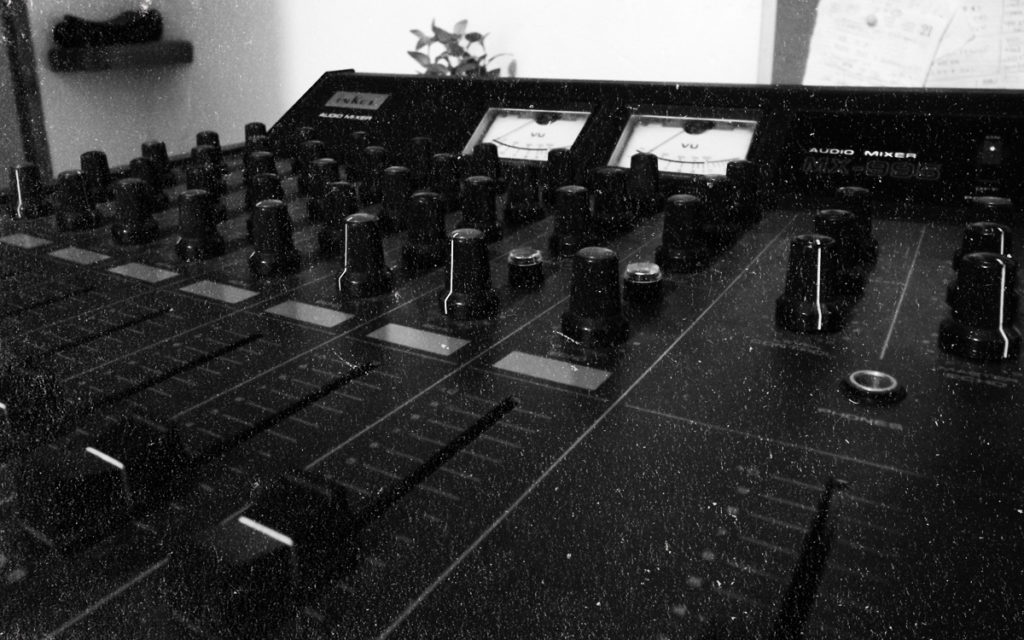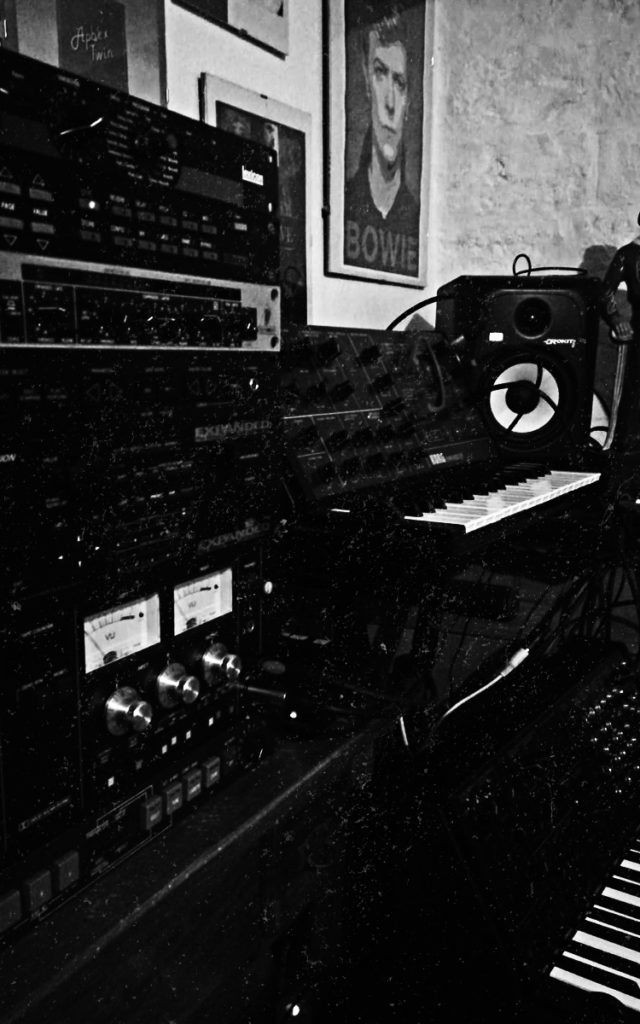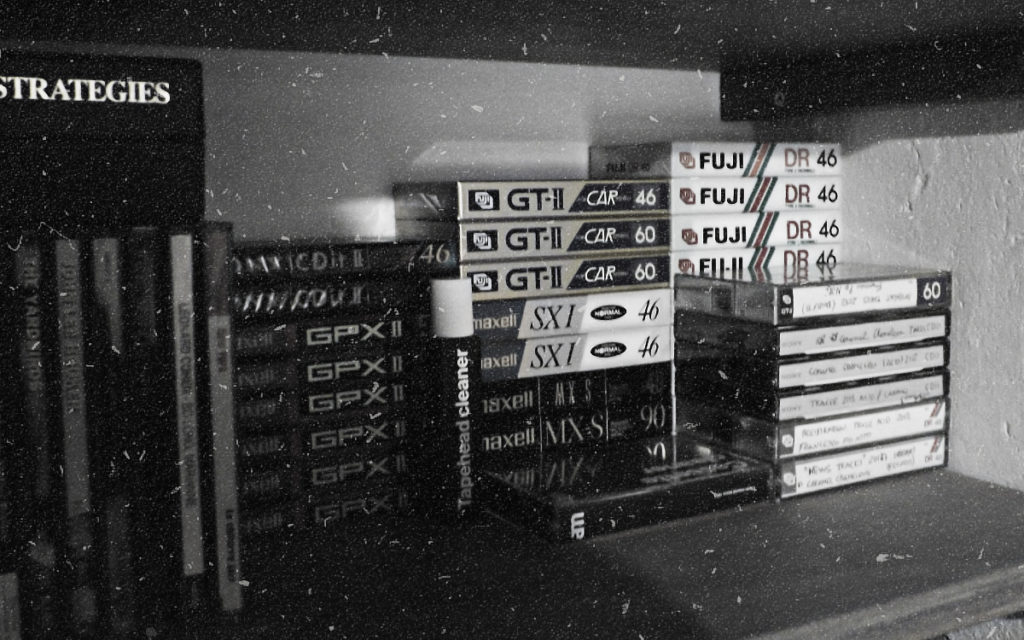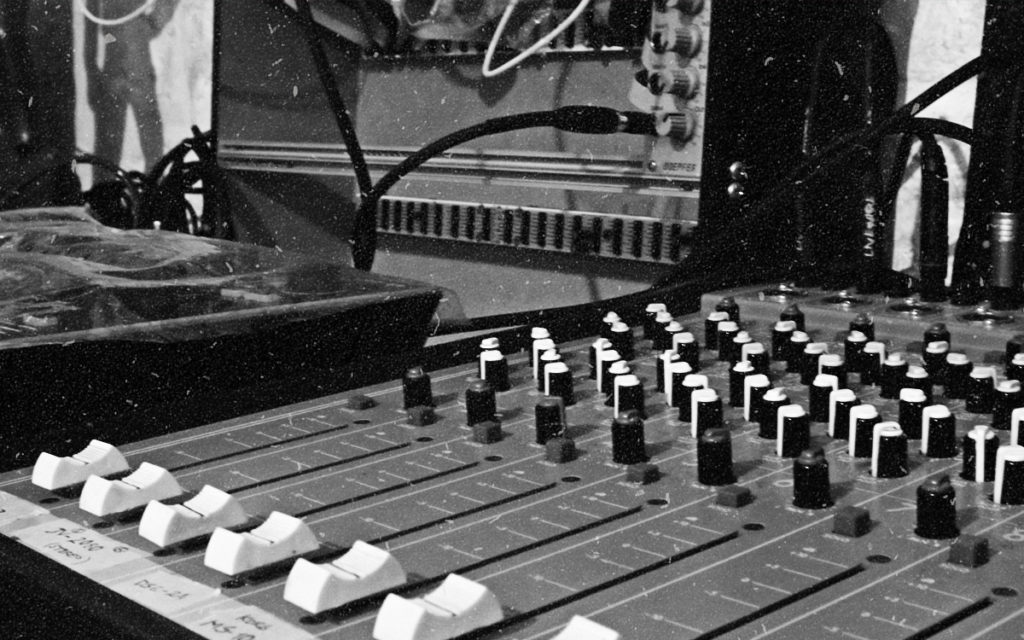Caramel Chameleon
A new face for italian Acid Music.
We inaugurate the new EVES website with this post and, for the occasion, we interviewed Francesco Pio Nitti, aka Caramel Chameleon, a young italian producer of just 22 years, who talks about his influences, the music equipment he used and how Smash Gate has taken shape, the recently work released for EVES.

How did you approach music? Music has always been present in my life, especially for the influence from my family. At the age of 12 I started a private electric guitar course, that was one of the first contacts with a music instrument. So, from that moment I started a path that allowed me to interact in a self-study way with various musical instruments, deepening my interest in the music world.
Which of music did you listen to before composing music?
At that time I mainly listened to rock, progressive and ambient music, until when my father introduced me to bands like Air, Tangerine Dream and kraftwerk and, from that moment, I began to deepen my knowledge of electronic music and, later, in synthesizer.
What kind of music do you listen to today?
The figure of my father was important in musical journey. I have a beautiful memory of when, at the age of 14, I asked him for advice on electronic music, searching for more contemporary genres. In response he proposed me two two CDs in mp3 format, it was the discography of Aphex Twin. That’s crazy!
Currently I mainly listen to acid, jungle and breakcore and, of course, all the music that Warp Records and Rephlex proposed in the 90s. So, these labels are what influence my music in these days. At the same time I am curious and aware that there is still a lot to discover; I define my approach to listening as a “ping-pong”. In the last few months I discovered a lot of Drumfunk’s producers like Paradox, Dub One and a lot of Footwork and, at the same time, music of 1400-1500, like Dufay and Palestrina.
What does your music express? What I compose is a mix of moods that I experience on a personal level, like emotions that are difficult to communicate with words and I describe them through music, which becomes my way out, as well as being a way test myself and grow.

Among the artists who mostly influenced my approach to music there are: David Bowie, who I listen since childhood. I consider him the most heterogeneous and enlightening artist. Philip Glass – with his music I started playing the keys; Jean-Michel Jarre – my passion for synths comes from him; Plaid – which allowed me to better understand IDM sounds and, of course, Ceephax Acid Crew – thanks to his music I knew the acid genre and I was seduced by it.
What kind of preferences do you have between analog or digital and what kind of configuration do you use to compose?
I consider both the analogue and the digital valid in equal measure. I have no preferences, there are nuances that the digital will never have respect to the analogue and vice versa. I appreciate the immediacy and precision of the digital and the “warmth and the fullness” of the analog sound. Indeed my ideal is the analog instrument digitally controlled.
I started my approach to music as a musician, but I have always preferred the composition of it, playing it. Now I use various configurations, that depending on the moment and the kind of workflow I want, I use the computer mainly for editing and for specific VSTs. Currently I compose and record almost exclusively live takes in the studio, recording digitally or on tape.

In addition to listening, where would you see your music applied?I have always been interested in combining my music with images or videos. Sometimes it happened that I composed by watching videos found on YouTube, with silent audio and I found it to be very stimulating and supportive during the composition process.
What do you think of globalization?
I have a negative opinion on occidental contemporary society, because of the presence of a unique model of life and predominant thought, that it has brought. I do not trust this ideology, so I think that people are becoming superficial and individualistic. Sometimes I think that globalization is in human nature and therefore inevitable.
What do you think about digital music instead of physical support and what do you think about social networks and how do you talk about them? Streaming is comfortable for the availability of online contents in any time. I like the idea of being able to easily communicate and share online contents. This immediacy is something that has no precedent in human history. However I criticize the fact that social networks feed egocentrism and exhibitionism and the lack of interaction with the real life, favoring only virtual interactions.

What idea do you have about the future of music in the years to come?
For the moment I don’t have a precise idea of what music will be in the years to come. I don’t have a good presentiment. However, I imagine that the online platform will be saturated with contents, and I have the fear that it will go to the detriment of the quality, that will inevitably come buried by ephemeral contents. Also for this reason, I consider the physical format important, because, like a document, it allows to leave traces of our passage, avoiding to meet, in the years to come, a cultural desert.
